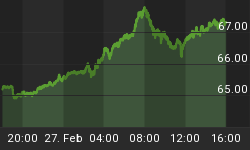Those traditionally elderly door greeters that we’ve grown used to gracing major American brick and mortar retailers are now being shored up with controversial facial recognition software undetected by customers
The Boston-based Fight for the Future advocacy organization is trying to put pressure on private businesses to swear off any form of facial recognition.
The group just launched a campaign to ban the use of facial recognition technology in restaurants and retail outlets, and the “Ban Facial Recognition in Stores” campaign has already been backed by more than 35 privacy and civil liberties organizations.
“Companies say they offer facial recognition in the name of ‘convenience’ and ‘personalization,’ but their real priorities are protecting and predicting their profits, ignoring how they abuse peoples’ rights,” said Caitlin Seeley George, campaign director at Fight for the Future.
According to the group’s database, several major retail stores are already using the software without being upfront about it. Those include Macy’s, Lowes, Rite Aid, Ace Hardware, Apple stores….
On the other side, Walmart, Kroger, Home Depot, Target, Costco, and Dollar Tree are among those that have pledged not to use it. Other major retail chains like BestBuy, 7-Eleven, Aldi, Starbucks told Fight for the Future that they might use it.
In 2019, Fight for the Future launched a similar campaign to ban facial recognition on university campuses in the U.S. Using facial recognition systems within schools has met with resistance from parents, students, and lawmakers alike.
Proponents hail the crime-solving and potential crime-prevention benefits. However, privacy advocates say it could lead to automatically identifying and tracking anyone, not just criminals, and it can be used for violations of privacy. They also argue that the data collected by corporations is often shared with law enforcement agencies, and this has resulted in wrongful arrests due to incorrect facial recognition.
The market for facial recognition tech is gaining in leaps and bounds. It’s expected to grow from $3.2 billion last year to $7 billion by 2024 in the U.S. alone.
It remains highly controversial, with privacy and civil rights groups scrambling to spread awareness in the public.
In 2019, Lowes and Home Depot were sued in Illinois for using the software even though they claim the aim is “to enhance security, protect against theft and other crimes and to monitor in-store traffic patterns…”
Employees from tech companies, including Microsoft, Salesforce and Google, demanded in 2018 that those companies stop selling software and services to the government and law enforcement agencies.
Amazon seems to be increasingly working with U.S. police forces via its facial recognition product, Rekognition. That move caused nearly two dozen Amazon shareholder groups to pressure CEO Jeff Bezos to stop selling it out of concern that the technology would represent yet another threat to our privacy and help the government cement its mass surveillance capabilities.
In the new report by the US Government Accountability Office (GAO), some 20 government agencies are using recognition software. In addition to law enforcement agencies, the Postal Service and the Fish and Wildlife Service are using it.
However, the report claims that many agencies do not even know which systems they are using and that better awareness is needed.
“Although the accuracy of facial recognition technology has increased dramatically in recent years, risks still exist that searches will provide inaccurate results,” wrote GAO.
Still, even if tech workers and privacy advocates somehow manage to ban facial recognition software from stores and institutions, there is another issue that seems impossible to challenge:
Our TVs are also equipped with cameras, microphones and, in some cases, facial recognition technology. We all remember Facebook CEO Mark Zuckerberg covering his laptop camera and microphone in 2016. Former FBI director James Comey did the same.
A recent Consumer Report investigation found millions of smart TVs had security flaws.
Furthermore, a 2019 study published by Northeastern University found several devices, including reputable brands, automatically send data to Amazon, Facebook, Netflix, and third-party advertisers.
















